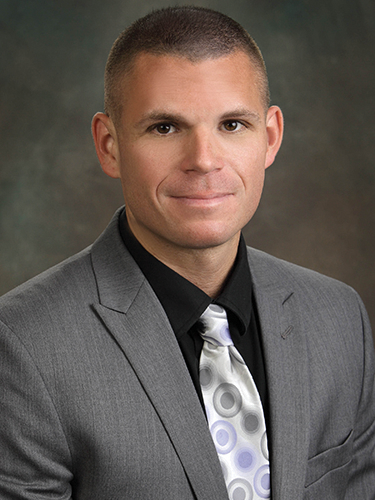Published on July 15, 2016
'Breathe A Little Easier' With Allergy, Asthma Treatment
You spent all winter cooped up inside your home and now that the weather is nice, you’re starting to plan outdoor activities.
Except there’s one not-so-small problem: Your nose is leaky, your eyes are red and itchy, and you have unbearable sinus pressure. For some people, allergies and asthma make you feel terrible. For others, these can present as more serious health problems. Either way, you can’t do the things you want and enjoy life.
Fortunately, there are medical options to help you breathe a little easier.
In The Air
Allergies and asthma are extremely common problems. Approximately 1 in 12 people suffers from seasonal respiratory allergies. It’s about the same number for asthma.
Your immune system is at the heart of both of these problems. It’s there to protect you from microscopic foreign invaders, including bacteria and viruses. Sometimes, your immune system recognizes other substances, called allergens, and it reacts to them. That immune response is what causes a runny nose, itchy eyes and sinus pressure.
Asthma functions very similarly, with your airway becoming inflamed and swollen, and the muscles around your airway constricting. This leads to symptoms like coughing, wheezing and shortness of breath. Sometimes asthma can be triggered by allergens. Other times it can be caused by stress, exercise, exposure to certain chemicals, or even weather conditions. And in some cases, we can’t identify the cause.
In the milder cases, asthma can be an uncomfortable feeling marked with cough, chest tightness and shortness of breath. In more-severe cases, however, it can be life-threatening with respiratory distress.
Medical Mystery
The first step to treating allergies and asthma is identifying the culprit that’s making you uncomfortable. With allergies, we can do a test that exposes you to tiny amounts of the usual suspects. With asthma, it’s the same; by provoking constriction of your airways, we can determine if asthma is present
Allergies can be treated in a variety of ways. There are many types of over-the-counter remedies and stronger prescription medications. We can also provide you with allergy shots, which help to hinder your immune system from reacting to certain allergens. In more severe case, we can use immunotherapy to block the immune reaction causing your symptoms.
In the case of asthma, once we identify the cause, we can address the problem. One of the top priorities is to limit your exposure to the triggers of your asthmatic symptoms. We also want to provide you with medications that can help reduce the inflammation and constriction of your airways. This can include inhaled medications to provide you 24-hour relief of airway constriction and long-term inhaled steroids to help reduce inflammation.
Managing Your Life
The most important thing I try to convey to my patients with these symptoms is that we will do everything possible to help you live the life you want to live. To do that, we want to arm you with the information and resources you need to manage your condition.
For patients with allergies, we can help identify what you’re allergic to, so you can avoid it or respond appropriately. For patients with asthma, we’ll help you understand what causes your attacks and how you can deal with those triggers.
We don’t want you to live in fear of your asthma or to miss out on the things you enjoy because your symptoms make you feel bad.
Dr. Thomas Waring is a board-certified pulmonologist and critical care specialist with Owensboro Health Medical Group.
About Owensboro Health
Owensboro Health is a nonprofit health system with a mission to heal the sick and to improve the health of the communities it serves in Kentucky and Indiana. The system includes Owensboro Health Regional Hospital, nationally recognized for design, architecture and engineering; Owensboro Health Muhlenberg Community Hospital; Owensboro Health Twin Lakes Medical Center; the Owensboro Health Medical Group comprised of over 350 providers at more than 30 locations; four outpatient Healthplex facilities, a certified medical fitness facility, the Healthpark; a weight management program, and the Mitchell Memorial Cancer Center.
On average each year, we have more than 19,000 inpatient admissions, deliver 2,000 babies and provide the region’s only Level III NICU. Owensboro Health physicians perform nearly 33,000 surgical procedures, including nearly 150 open-heart surgeries. Our physicians and staff have 90,000 Emergency Department visits and more than 1.25 million outpatient visits annually. Visit our home page for more information.
